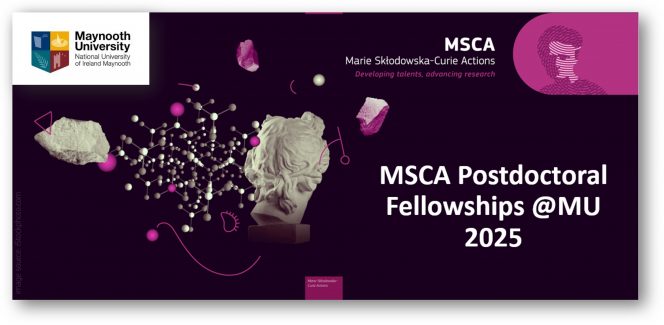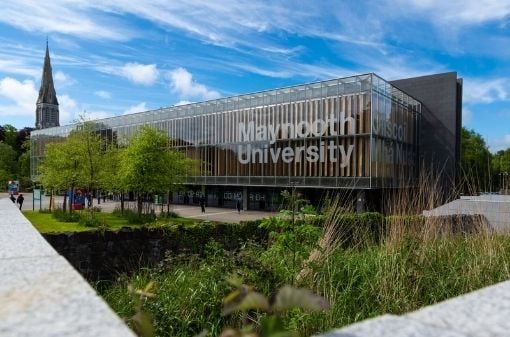Marie Skłodowska Curie Postdoctoral Fellowships support the mobility of researchers within and beyond Europe

Maynooth University is interested in hosting Marie Skłodowska Curie Action (MSCA) Postdoctoral Fellowships. With a wide range of research expertise and areas, we can provide an excellent mentoring and training environment.
Please feel free to reach out to our expert researchers directly to discuss potential research ideas and to express your interest to apply for an MSCA Postdoctoral Fellowship for the 2025 call.
Enhanced Postdoctoral Fellowship Scheme (EPF) 2025
The Research Development Office is running an enhanced support programme for prospective MSCA Postdoctoral Fellows applying in 2025. For selected prospective fellows, the EPF scheme is expected to include:
- A two-day visit to Maynooth University, including meeting proposed mentors, showcasing the university's research excellence, and workshops that will support and enable successful applications.
- On-going subsequent support, including webinars and writing workshops, up to the September 10th, 2025 deadline.
Applications have now closed but prospective fellows may still receive support with their application. Those interested in applying or in supporting applications as a mentor should get in touch with the RDO as soon as possible.
Marie Skłodowska Curie Postdoctoral Fellowships support the mobility of researchers within and beyond Europe

There are two types:
- European Postdoctoral Fellowships take place in an EU Member State or Horizon Europe Associated Country and last 1–2 years. Researchers of any nationality can apply.
- Global Postdoctoral Fellowships fund the mobility of nationals or long-term residents of EU Member States or Horizon Europe Associated Countries outside Europe. They last 2–3 years, of which the first 1 to 2 years will be spent in a non-associated Third Country, followed by a mandatory return phase of 1 year to an organisation based in an EU Member State or Horizon Europe Associated Country.
Application Process
Individual researchers submit proposals for funding in liaison with their planned host organisation. Proposals are judged on Excellence, Impact and Implementation, with focus on the training and career development of the researcher as well as the excellent research idea. Those restarting their careers benefit from special eligibility conditions.
All areas of research are eligible for funding, including STEM, social sciences, humanities and economic sciences.
